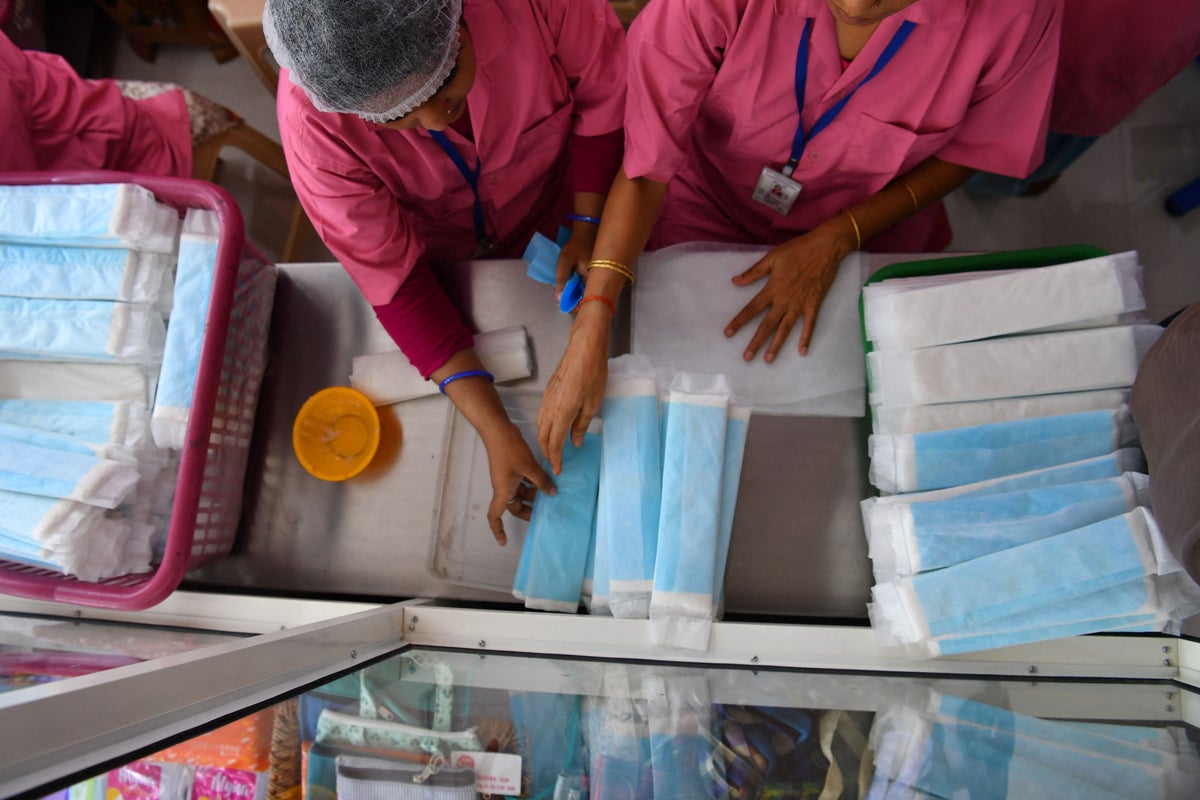
The south Indian state of Karnataka has approved a landmark policy granting all women one day of paid menstrual leave each month.
The state, which is home to “India’s Silicon Valley” in Bengaluru and hosts global customer service centres for companies around the world, said the policy would apply to both public and private sector organisations.
With this decision, Karnataka has become the first state in India to extend menstrual leave benefits to women in both the government and private sectors. Odisha and Bihar offer menstrual leave only to government employees, while Kerala has introduced a similar provision for students and staff in universities.
Karnataka law minister HK Patil said the policy, inspired by those models in other Indian states, would benefit working women.
“It will be helpful to women. The policy has been successful in other states, and we have decided to adopt it,” he told reporters after the cabinet meeting.
Several major private firms in India, including Zomato, Swiggy, Larsen & Toubro, Byju’s, and Gozoop, have voluntarily adopted similar policies.
The cabinet note said that the decision was taken to prioritise women’s physical and mental well-being while raising awareness about menstrual health – an issue still considered taboo in many workplaces in India.
Our Government stands committed to dignity and wellbeing at work.
— Siddaramaiah (@siddaramaiah) October 9, 2025
Through the Menstrual Leave Policy 2025, women employees across Karnataka will now receive one paid leave day every month - a step towards a more humane, understanding, and inclusive workplace.#MenstrualLeave… pic.twitter.com/LRV5bOAFXJ
“With the introduction of menstrual leave policy, all sectors employing women will have a policy to provide one day of paid leave per month to women employees for their health,” the state government said in its order.
Karnataka chief minister Siddaramaiah wrote on X: “Through the Menstrual Leave Policy 2025, women employees across Karnataka will now receive one paid leave day every month – a step towards a more humane, understanding, and inclusive workplace.”
Women’s rights activist Brinda Adige praised the initiative. “The government’s introduction of a one-day menstrual leave is a commendable step toward recognising the genuine health needs of women in the workplace.”
She was quoted as saying by NDTV: “By institutionalising such support in government and organised private sectors, this policy affirms that women’s well-being is integral to sustainable development.
“While the informal sector remains a challenge, this initiative lays a vital foundation for broader health empowerment, enabling increased female participation and fostering inclusive state growth,” she said.
Karnataka’s labour minister Santosh Lad said: “We had consulted industries and we will consult them again before framing the rules.”
The All-India Trade Union Congress (AITUC), Karnataka Committee, welcomed the state government’s decision, calling it a progressive step that would empower millions of women in both government and private sectors. The union said it had long advocated for a one-day-per-month menstrual leave policy, despite resistance from employers.
“We now request the government to immediately take measures to implement the decision through legislative action,” AITUC said, according to The Hindu.
In India, despite some progress, menstruation remains surrounded by stigma and misinformation, especially in rural and low-income areas, where access to affordable and hygienic menstrual products is still limited for many women.
Japan recognised menstrual leave as a labour right as early as 1947, setting a global precedent. Several other countries, including Spain, Sweden, Taiwan, Indonesia, South Korea, and Zambia, have since adopted similar policies, though the specifics differ. Some grant three days of leave annually, others allow one optional day a month, and a few offer flexible options such as remote work or shorter hours during menstruation.
In India, however, the idea has faced political resistance. In 2023, former women and child development minister Smriti Irani opposed the proposal, questioning: “Why should a woman’s menstrual cycle be known to her employer?” This response was met with widespread ridicule.
India is now lead supplier of fuel additives for Russia’s fighter jets, report says
India regulator admits lapses after 20 children die from contaminated cough syrup
Punjabi star Rajvir Jawanda dies aged 35 after tragic road accident
Bollywood actor Saif Ali Khan reveals details of stabbing attack inside Mumbai home
Death toll from toxic cough syrup in India rises to 20 children as WHO intervenes
At least 15 dead after landslide strikes bus in northern India







